Conversational Gymnast Reuel R. Lewis

All rights reserved worldwide. None of this publication may be republished in any form by any means, including photocopying, scanning or otherwise without prior written permission to the copyright holder. 2
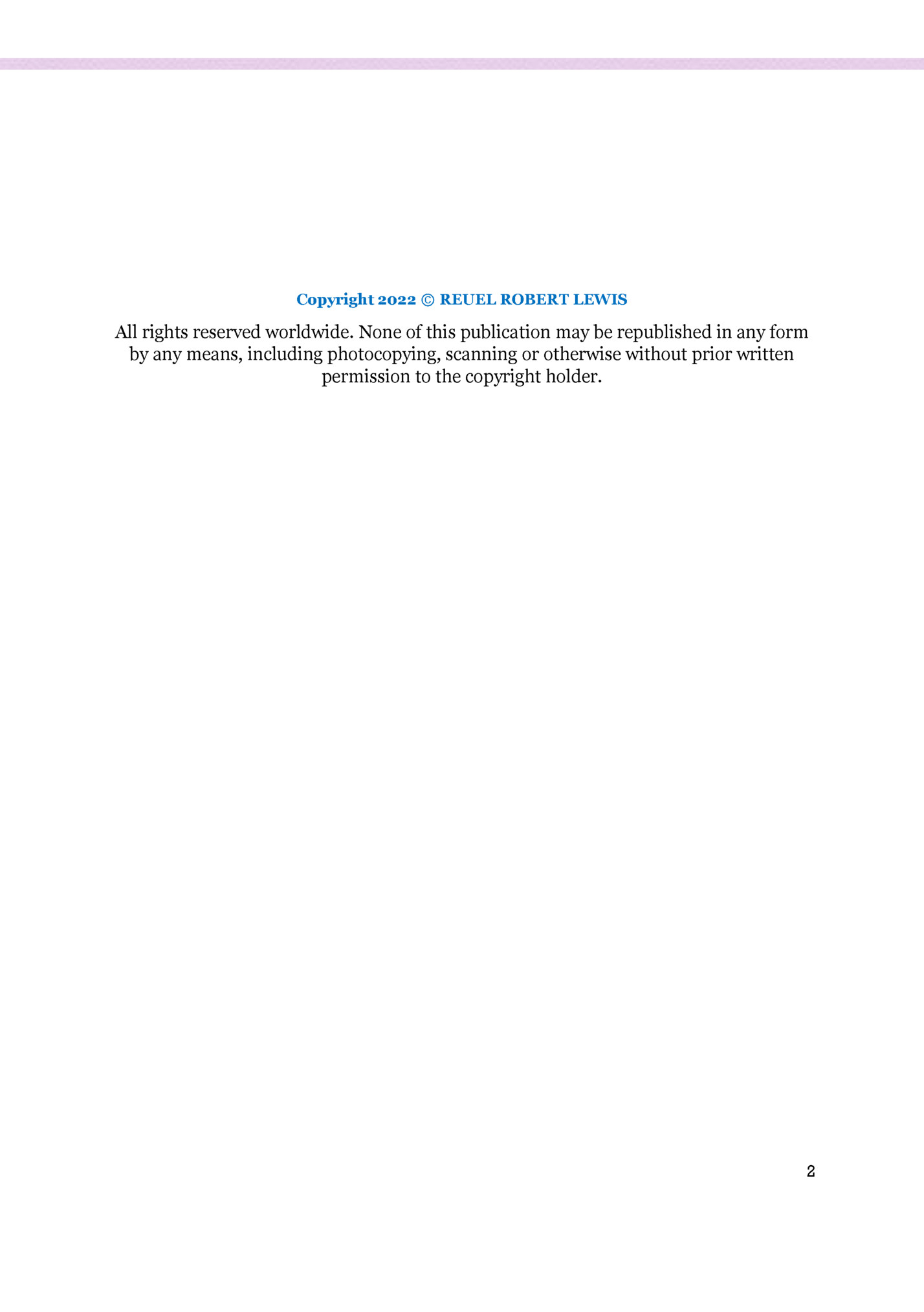
Introduction 1 Acknowledge 2 Accept 3 Analyze 4 Aim 5 Act Conclusion 3
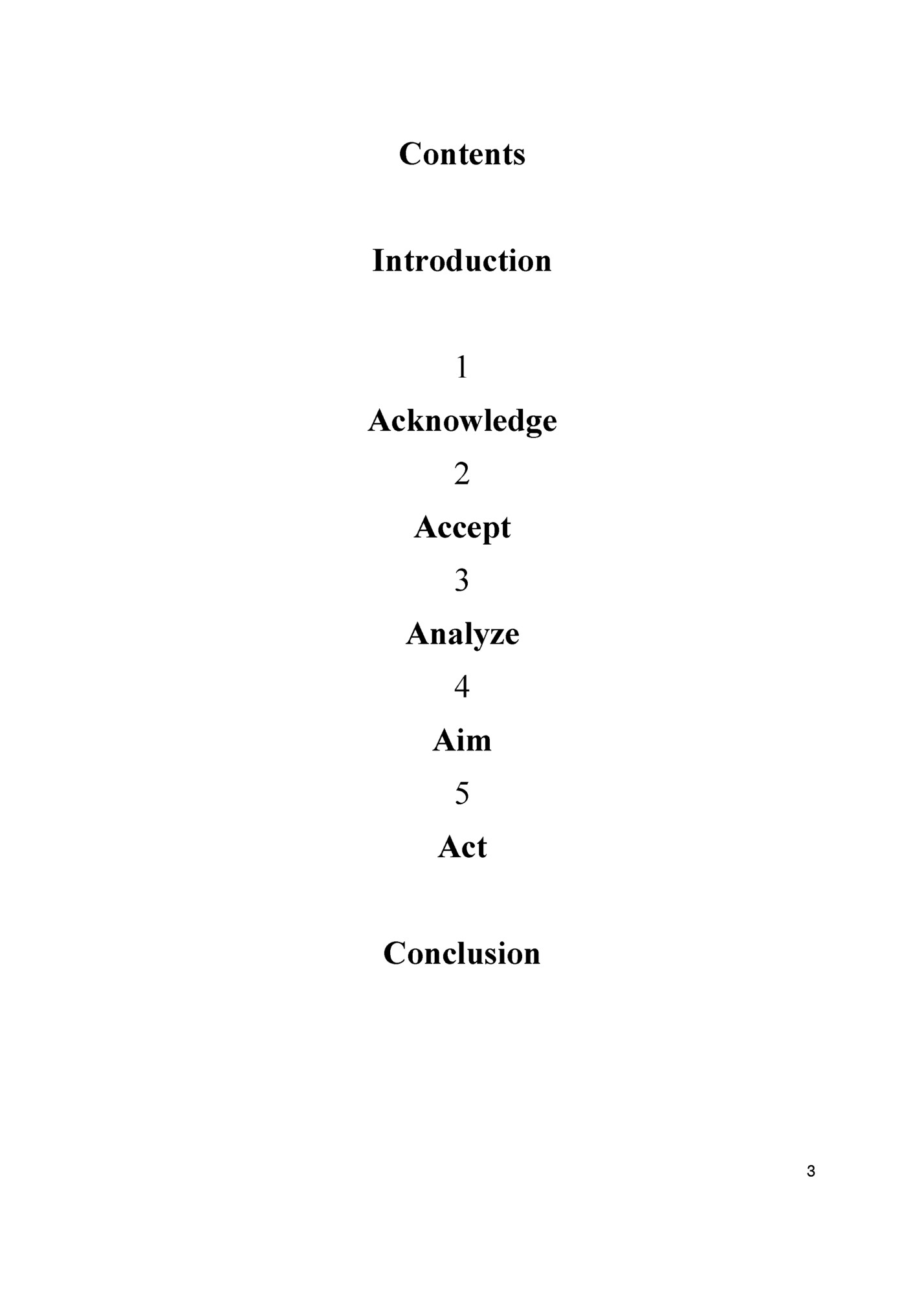
destination. As you drive down the road enjoying the scenery, or perhaps cursing the traffic and bad roads, the infrastructure, the corrupt political system…suddenly you feel the car wobbling and so you slowly guide the car to a rest spot. As you get out of the car you quickly scan it to find out the problem. You identify the culprit: A punctured tire. Now that you know what’s wrong and you know what needs to be done to correct it, you do what must be done and then you go your merry way. How did you successfully overcome the challenge to help yourself? It was by acknowledging, accepting, analyzing, aiming, and acting to change what was needed. “That’s all fine and good” you say, “but I’m not here to learn about cars and you’ve titled the book ‘Conversational Gymnast’ – perhaps you ought to improve a bit in your own communication skills yourself may be….eh?!” Now, indulge me here for a second, will you? Permit me to explain why I’ve coined this phrase “Conversational Gymnast” and how the above analogy of sorting out the problem with your car nicely ties in with the contents of the “Conversational Gymnast”. One of the most valuable skills a Gymnast has is : Flexibility – be it physical or mental. Whether to win a competition, or to learn valuable skills during their rigorous training, or having to camp in different areas during a tour - flexibility helps them use their skills to the best possible advantage. Communication is a skill that needs constant flexibility – regardless of whom we’re conversing with at any given point in time since we play multiple roles. These roles and responsibilities cannot be wished away. When we wear that cloak as per the need of the hour, or need of the minute, or need of the second, we always communicate accordingly. 4
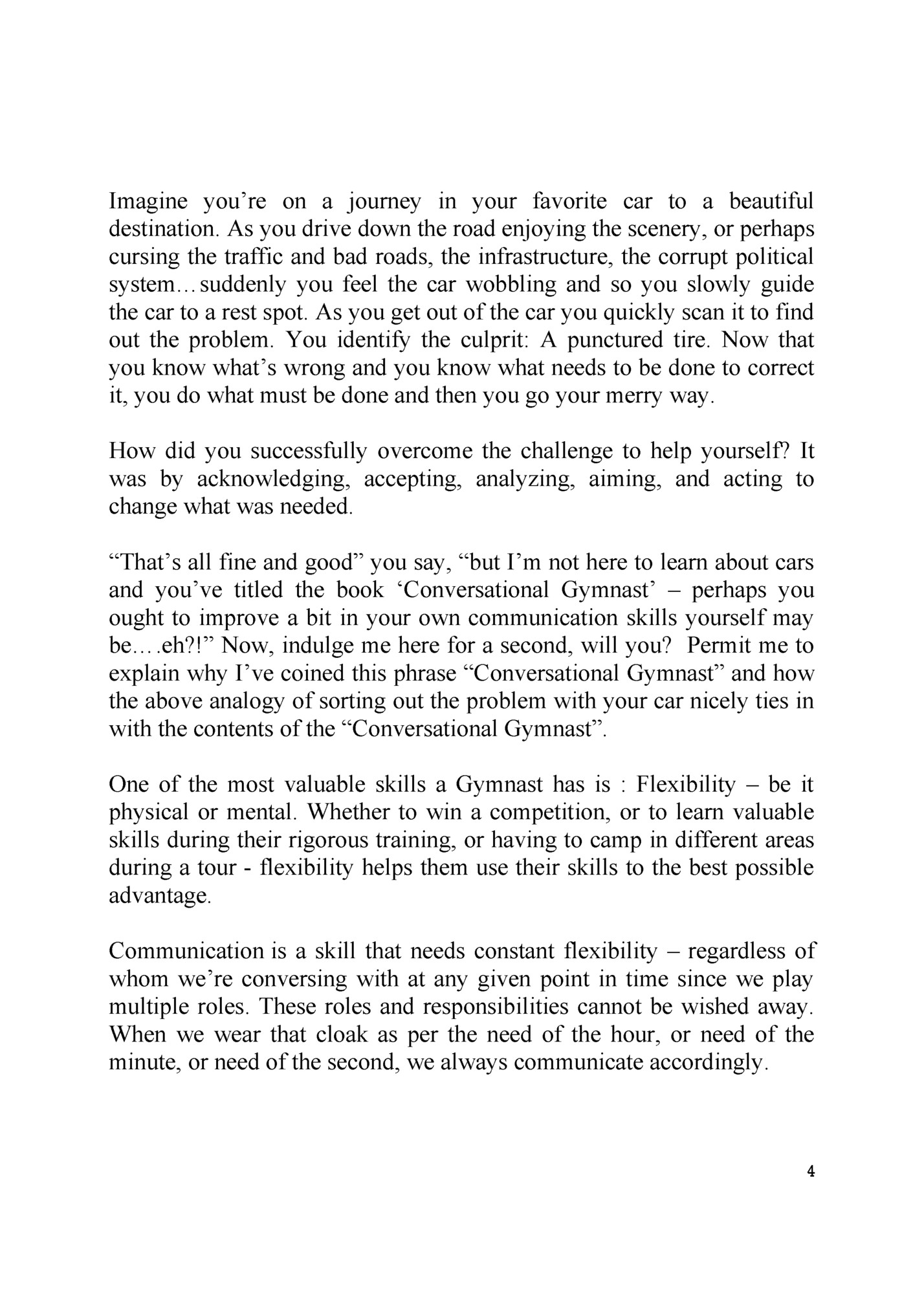
adapt in an instant - as per the situation and person! From a parent, a spouse, a friend, a neighbor, an employee, an employer, an entrepreneur, an artist, a scientist, armed forces personnel, a preacher, a housewife, a child, a teenager, a dreamer, a lover – we tend play all these responsibilities simultaneously. We communicate what’s needed in that very second changing everything from our tone, our words, our body language, our attitude, all the way to our expectations! What a grand role we each play in our lives and those of others while articulating our thoughts which would hardly have taken a fraction of a second for us to think about! These words that we use can make us, and the receiver jump around with rapturous delight; or it could tear and rip us and the receiver to shreds - be damaged for life, and in some cases, it may also result in life or death. How true have been the words “Death and life are in the power of the tongue. Those who love to use it will eat its fruitage.” (Proverbs 18:21). Using the skill of adaptability like a gymnast does, we can use the skill of adapting our communication for good. This E-book is a tiny an attempt to help decipher what can help us become better communicators, to be effective and skillful articulators of our thoughts, opinions, and emotions. Listed below are a few points that we can keep in mind and practice anywhere. The decades of training I’ve had as a public speaker has helped me hone my skills to great advantage. I’ve listed a few here which have served me well in my more than 4 decades of public speaking. 5
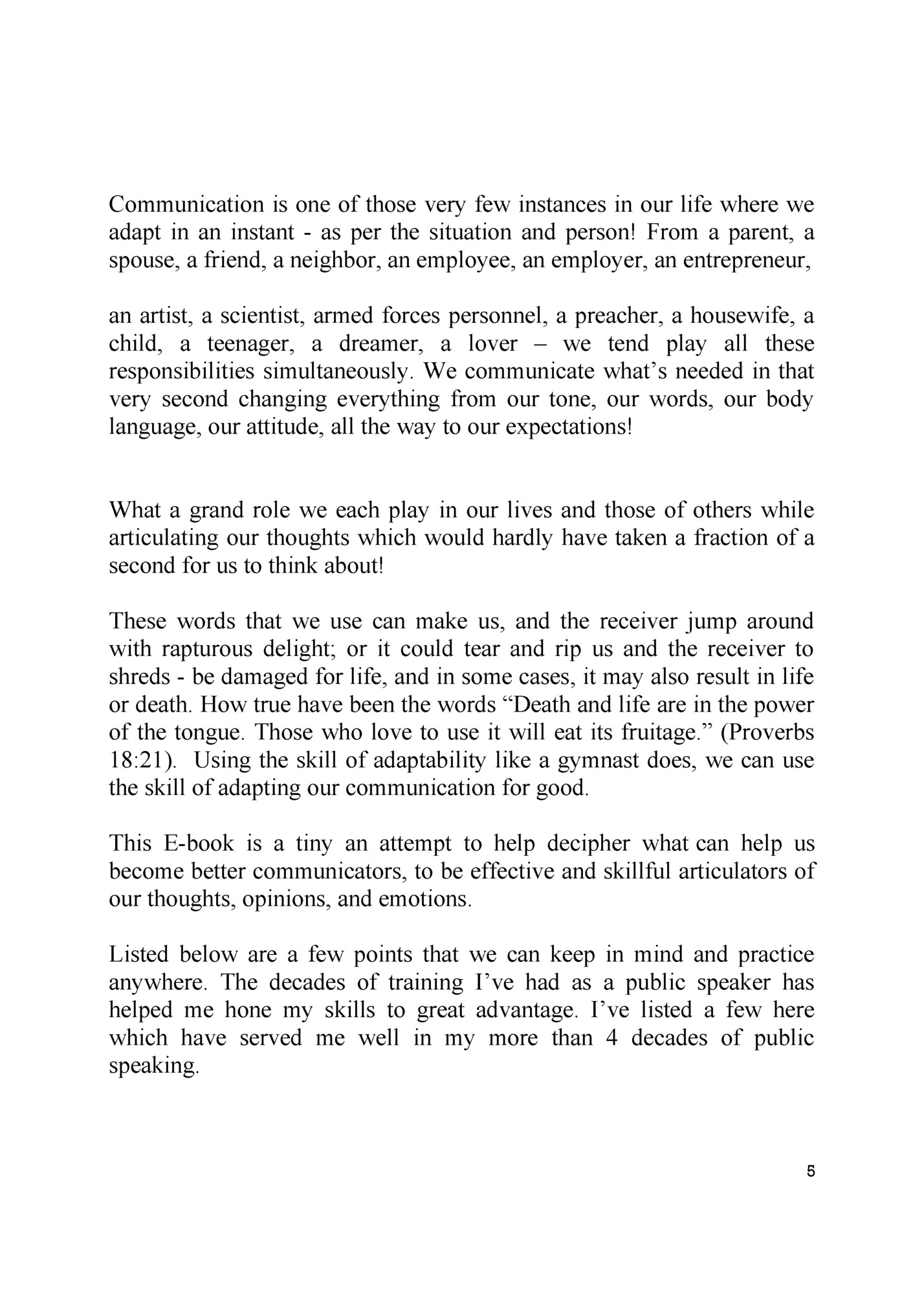
1) Acknowledge 2) Accept 3) Analyze 4) Aim 5) Act Hmmmmmm….. makes one wonder where they read the above five words in this book, right? Without much ado, let’s expand briefly on the above concepts: 6
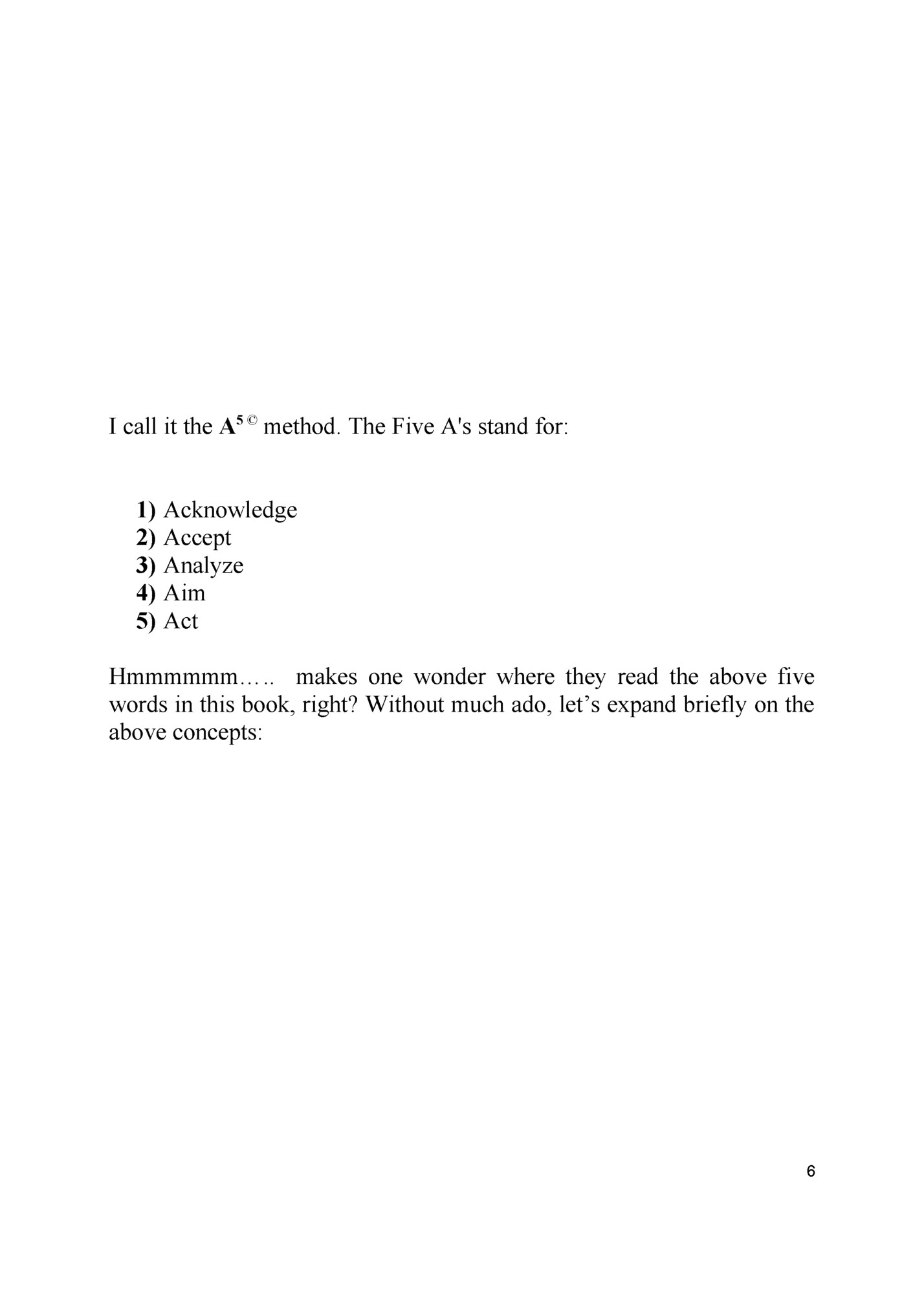
either grind to a complete halt or catapult us to the highest level of our being, provided we first reject or ACKNOWLEDGE that there’s a problem which needs to be solved. Be it personally (health, qualities, skills, relationships, finances, attitude etc.,) or as a family (lack of love, trust, communication etc.,) even as a country (corruption, poverty, general mindset, lack of scientific, medical, and financial progress etc., ) – we first need to acknowledge there’s a problem before we can move forward –– So…pause for a moment here to think….is there a reason why you downloaded this book? Is it only because you were happy to get something free? Or do you acknowledge the fact that somewhere you need at least a little bit of help to communicate well? 7
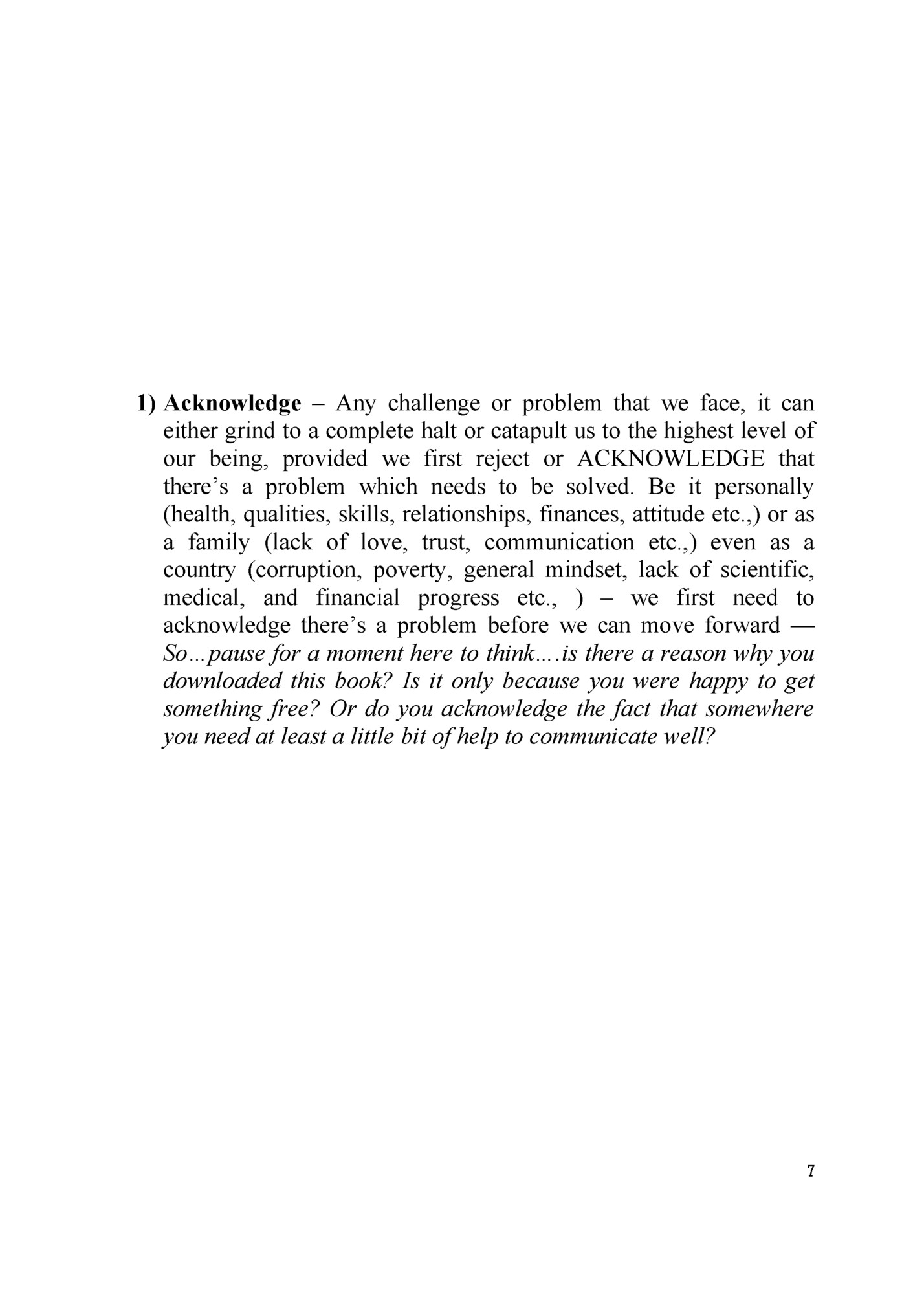
the next difficult part: ACCEPT the same. Why is this difficult? Simply because many a time it puts us in an uncomfortable situation by clashing with our ego, emotions, values, traditions, budgetary constraints, our loved ones, cherished opinions, and forces us to think outside the box. – Well, are you willing to accept the fact that the problem you’ve acknowledged exists, might have cost you much more than you ever imagined? You may not be the one to blame either. Perhaps, not acknowledging that a problem exists, has played a huge part in something negative that took place. 8
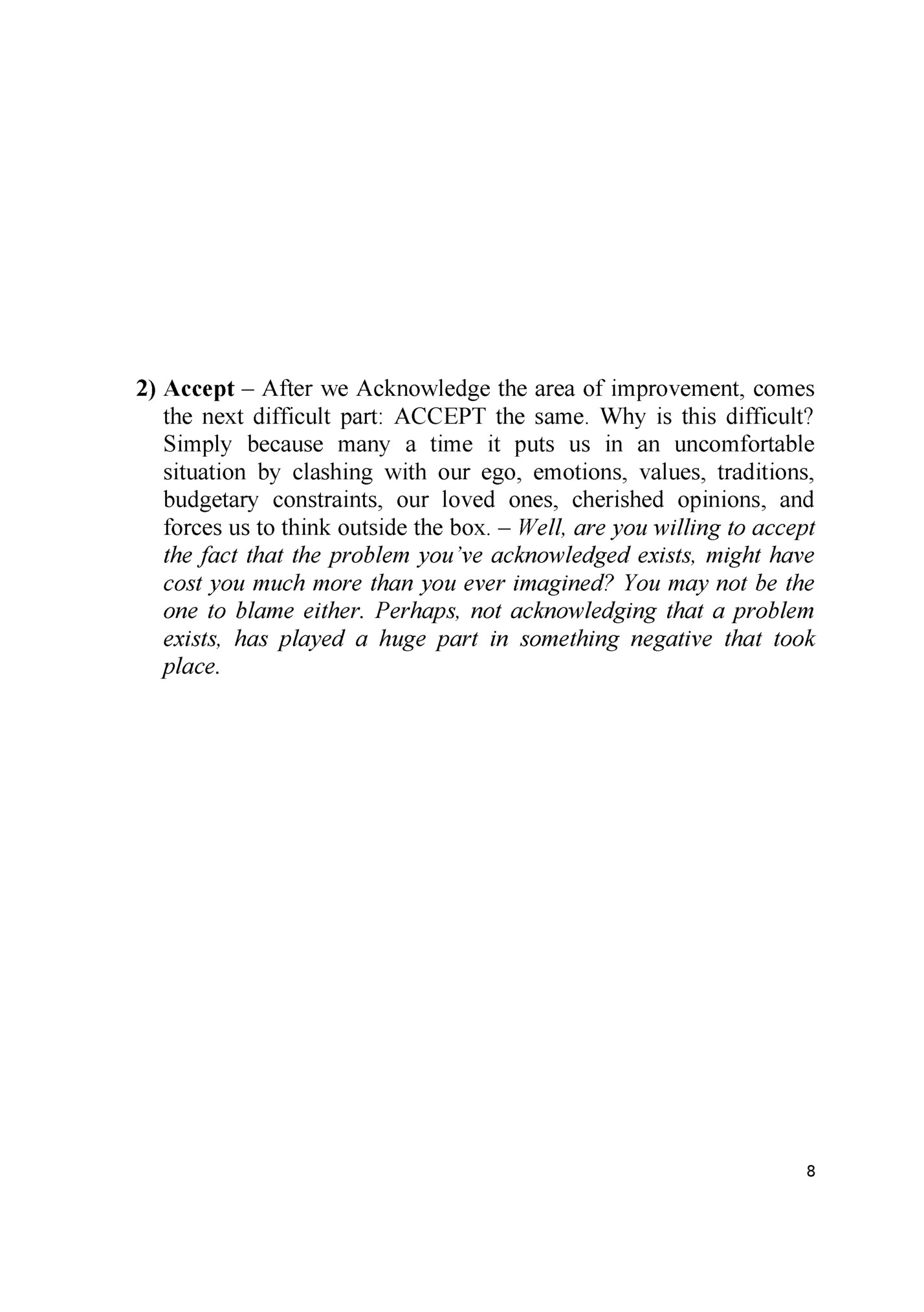
better our communication skills or any other area of our life? Regardless of whether you like the answer or not, this will always remain the truth: ANALYZE. This is not an Analysis-Paralysis that I’m talking about. In fact, some of us know that a brutal and honest analysis of our lives will bring us face to face with the very bitter truth than many times we have used “analysis” or “thinking” to procrastinate a painful but necessary action. How can we successfully analyze ourselves? We do that by, reading (the relevant book, articles about our topic), observing, asking questions (sometimes it’s good to ask those who may not like us too), listening, or just being in the moment, – and then – here’s the most difficult part: Be brutally honest with yourself – do this by writing down what you thought, felt, expected, what the outcome was and the lesson learnt. There is always something to learn or remind us about, which helps us to help ourselves or help others . There’s always a new opinion, a new viewpoint, a breakthrough discovery, a different dimension that can increase our fund of knowledge. – So, do this now: Analyze a certain situation of yours and then, answer this: What has your analysis of your situation unearthed to you? 9
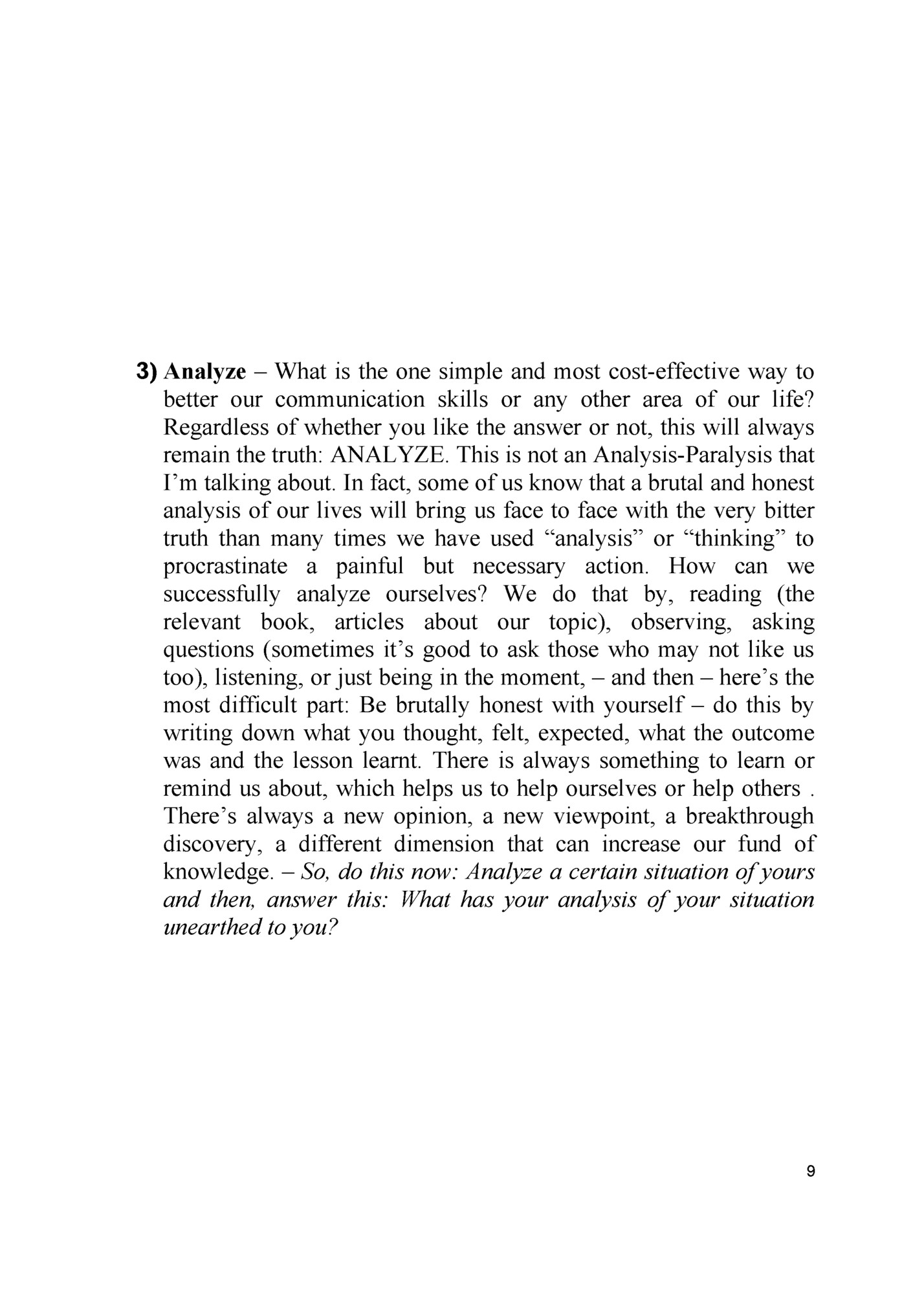
Fleepit Digital © 2021